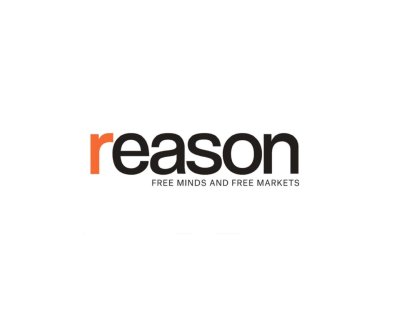Appeals Court Briefs Say Trump’s Tariffs Are Based on a Statute That Does Not Authorize Tariffs at All
In May, the U.S. Court of International Trade (CIT) ruled that President Donald Trump exceeded his statutory authority when he invoked the International Emergency Economic Powers Act (IEEPA) to impose stiff, wide-ranging tariffs aimed at reducing drug trafficking and bilateral trade deficits. The Trump administration is now asking the U.S. Court of Appeals for the Federal Circuit to reverse that decision. But in two briefs filed on Tuesday, the Cato Institute and New Civil Liberties Alliance (NCLA) argue that the CIT should have gone further by ruling that the IEEPA does not authorize tariffs at all.
The CIT decision in VOS Selections v. Trump dealt with two sets of tariffs: the import taxes on Chinese, Mexican, and Canadian goods that Trump presented as tools to coerce greater cooperation in the war on drugs and the “Liberation Day” tariffs on goods from nearly all countries, which he said would help reduce the gap between U.S. imports and exports. In both cases, the problems that Trump claimed to be addressing were longstanding: Drug-related deaths had been rising for decades, and the U.S. has not run a trade surplus since 1975. Yet in both cases, Trump asserted an “unusual and extraordinary threat” that constituted a “national emergency” under the IEEA, which he said justified his tariffs.
In separate lawsuits, a dozen states and several businesses argued that Trump was wrong about that. Addressing both lawsuits, a three-judge CIT panel unanimously agreed, saying neither set of tariffs was authorized by the IEEA. “We do not read IEEPA to delegate an unbounded tariff authority to the President,” the judges said. “We instead read IEEPA’s provisions to impose meaningful limits on any such authority it confers.”
Cato and the NCLA agree that the statute does not give the president “an unbounded tariff authority.” In fact, they argue in their Federal Circuit briefs, the IEAA does not give the president any tariff authority.
“The Constitution vests the power to impose tariffs solely in Congress,” the Cato brief notes. “For over a century, Congress exercised that power directly and in exhaustive detail, even during times of war and economic crisis. When Congress has chosen to delegate limited authority to the Executive to vary tariffs, it has done so explicitly and with clear statutory limits.”
By invoking the IEEPA “as a source of unilateral tariff authority,” Cato says, Trump “breaks with this tradition and misreads the statute.” That law “contains no reference to ‘tariffs’ or ‘duties,’ and no President had cited it to impose tariffs in the nearly 50 years since its enactment—until now. Congress knows how to grant tariff authority when it chooses to, as it did in the Tariff Act of 1922, the Tariff Act of 1930, the Trade Expansion Act of 1962, and the Trade Act of 1974. IEEPA, by contrast, was enacted to limit executive power, not expand it. Courts should not credit interpretations of vague statutory texts that, for the first time i
Article from Reason.com

The Reason Magazine website is a go-to destination for libertarians seeking cogent analysis, investigative reporting, and thought-provoking commentary. Championing the principles of individual freedom, limited government, and free markets, the site offers a diverse range of articles, videos, and podcasts that challenge conventional wisdom and advocate for libertarian solutions. Whether you’re interested in politics, culture, or technology, Reason provides a unique lens that prioritizes liberty and rational discourse. It’s an essential resource for those who value critical thinking and nuanced debate in the pursuit of a freer society.



